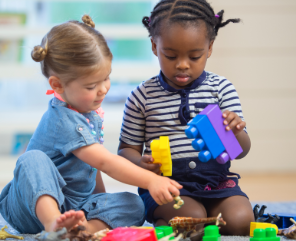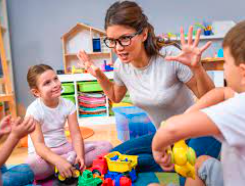Helping children explore the world around them is one of the most rewarding parts of early education. Introducing science concepts at a young age lays the foundation for curiosity, critical thinking, and a lifelong love of learning. While young learners may not be ready for complex theories, they are naturally eager to observe, ask questions, and try things out—making early childhood a perfect time to begin exploring basic scientific ideas.
Start with Everyday Wonders
Science is all around us, from the weather outside to the food on our plates. Encourage children to observe changes in the environment, like how puddles dry up or how plants grow. Talking about the sun, rain, shadows, or the way ice melts introduces children to important ideas about nature and physical changes in a fun and relatable way.
Use Hands-On Activities
Young children learn best through play and exploration. Simple experiments such as mixing colors, floating and sinking objects, or watching seeds sprout can be both engaging and educational. These activities help children develop observation skills, learn cause and effect, and begin to make predictions—all core parts of scientific thinking.
Encourage Questions and Conversations
When children ask “why,” they’re doing science. Create a learning environment where curiosity is encouraged and every question is valued. Instead of giving all the answers right away, ask children what they think might happen and let them test out their ideas. This promotes reasoning skills and builds confidence.
Introduce Scientific Vocabulary Gently
Using age-appropriate language, introduce terms like “experiment,” “observe,” “predict,” and “explore.” These words help children express their ideas and understand new concepts. Reinforcing them through play, books, and discussion makes learning both natural and memorable.
Make Science a Story
Children love stories. Frame science topics like a mystery or adventure. For example, “Let’s find out what happens when we put this in water!” or “Can we guess what’s inside this seed?” This approach keeps learning exciting and builds a positive emotional connection to science.
Connect Learning to Real Life
Use field trips, nature walks, cooking, or gardening to bring science lessons to life. Watching birds, observing clouds, or measuring ingredients teaches children that science is not limited to a classroom—it’s part of everyday life.
Support Exploration Through Books and Media
Read picture books that focus on science topics or show children engaging in discovery. Educational videos and songs can also reinforce new concepts. Choose resources that are age-appropriate, engaging, and designed to spark interest.
Final Thoughts
Introducing science concepts to young learners is not about memorizing facts—it’s about nurturing a mindset of wonder and discovery. With the right approach, early science experiences can be fun, meaningful, and impactful. By encouraging observation, experimentation, and curiosity, educators and caregivers help children build a strong foundation for future learning.


